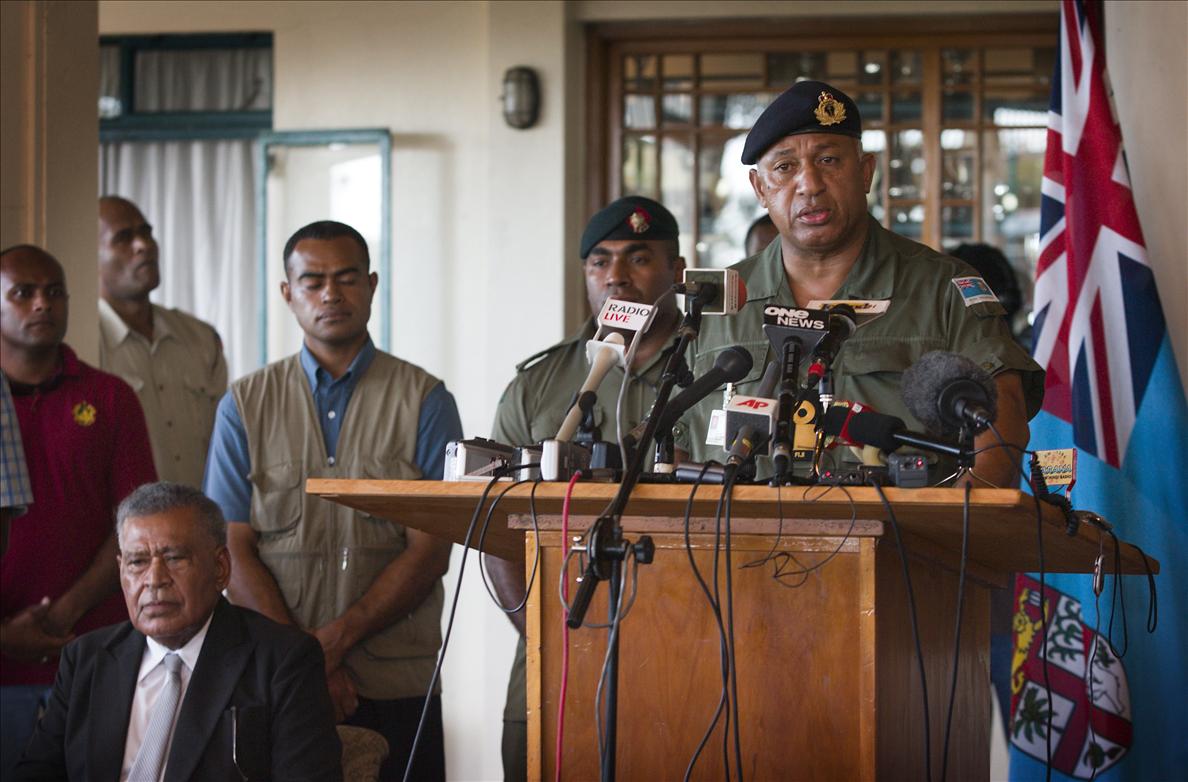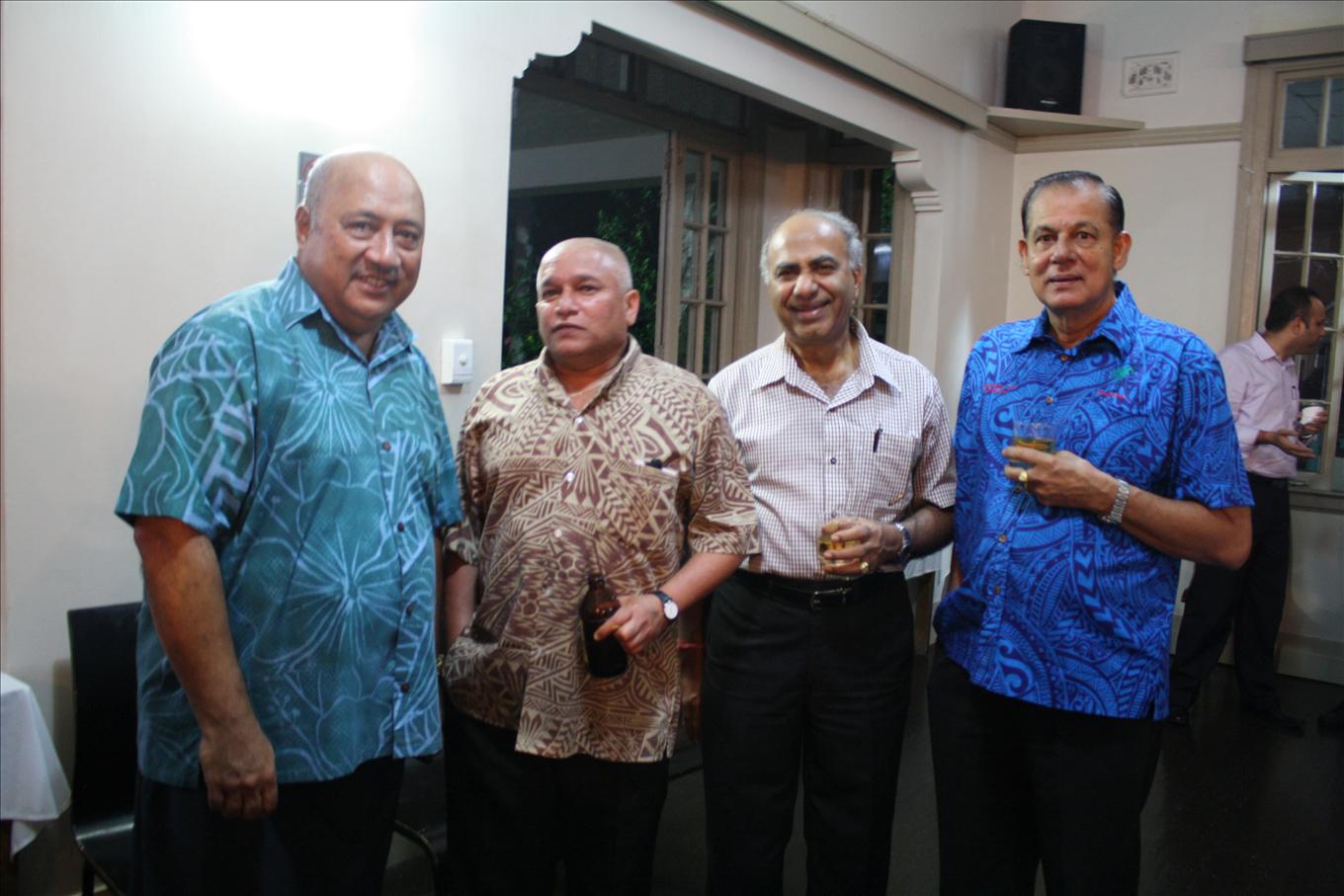 Fiji’s new Constitution is due to be released soon.
Fiji’s new Constitution is due to be released soon.
It is being touted as the ‘Mother of all Constitutions.’ If so, it will be an outcome after the December 5, 2006 military coup that was touted as the ‘Mother of all Coups!’
Interestingly, it was the fourth coup and the proposed Constitution will also be the fourth Constitution for Fiji.
 The country’s experience in coup-making, Constitution destruction and its replacement is a feat that is perhaps unequalled by any other nation in the world.
The country’s experience in coup-making, Constitution destruction and its replacement is a feat that is perhaps unequalled by any other nation in the world.
In just over two decades, Fiji has proven, without a shadow of doubt, that Constitutions are no guarantee of security for people or stability of governance. Despite this, the interest and expectations of Fijians and the outside world is palpable.
Historically, none of the past Constitutions matched the ideals of democracy.
Inequity and injustice
Fiji always had a hollow democracy that operated on a simple premise – indigenous political supremacy at the behest of Indo-Fijian rights.
The Colonial era (1874-1970) operated on the premise that political rights of the white community superseded the rights of others.
In the post-independence era, the political rights of the indigenous community superseded the rights of others.
A basic contravention of the democratic principles was in representation. It was not based one ‘one person, one vote, one value’ but on ethnicity where indigenous values superseded those of others.
Consequently, allocation of seats in the Parliament was grossly disproportionate.
Flawed document
 The 1970 Constitution for independent Fiji was deeply flawed. It was formulated by the British that gave Europeans disproportionate representation. The Europeans (including part-Europeans and Chinese) with population of 28,000 (7% of the population) had 10 seats; iTaukei, with population of 228,000 (46% of population) had 14 seats and Indo-Fijians, with a population of 256,000 (nearly 50% of the population) had 12 seats. Yet, the 1970 Constitution was accepted as democratic.
The 1970 Constitution for independent Fiji was deeply flawed. It was formulated by the British that gave Europeans disproportionate representation. The Europeans (including part-Europeans and Chinese) with population of 28,000 (7% of the population) had 10 seats; iTaukei, with population of 228,000 (46% of population) had 14 seats and Indo-Fijians, with a population of 256,000 (nearly 50% of the population) had 12 seats. Yet, the 1970 Constitution was accepted as democratic.
In fact, it was anything but democratic and it allowed autocracy to prevail and contributed to politics of degeneracy that facilitated military coups.
It was trashed, following the first military coup on May 14, 1987 and was replaced by the 1990 Constitution. It clearly defined the precarious future and place of Indo-Fijians.
Fiji has never been the same since.
Draconic provisions
Interestingly, the advocates of the racist 1990 Constitution, who are now wailing at the demise of democracy in Fiji, were not only comfortable but ecstatic at its draconian provisions. For example, Indo-Fijians with 48.6% of the population were allocated 31% of the seats (19 seats) and iTaukei, with 46.6% of the population were allocated 56% of the seats (40 seats) and General Electors with 5% of the population were allocated 11% of the seats (8 seats).
It was a document of oppression to discriminate and marginalise Indo-Fijians.
What followed was a decade of nightmare suffered in silence, as hounds of racism derived pleasure in their pain.
I was one of its thousands of victims. Life has never been the same since.
Senate of Chiefs
Ironically, the 1990 Constitution also established a Senate of Chiefs with similar powers to the Senate, provided under the 1970 Constitution. The Senate comprised 24 chiefs nominated by the President on the advice of the Great Council of Chiefs, including one Rotuman and nine nominees from other communities.
The Great Council of Chiefs was also given the additional power and authority to appoint the President, entrenching its place of dominance in in Fiji politics.
In this course, the obvious victims were Indo-Fijians but few could see how ordinary iTaukei were criminally deprived of their democratic rights.
The indigenous oligarchy, comprising the chiefs and peddlers’ of ethno-nationalism, strengthened their stranglehold on power, perks and privileges.
Prejudiced lot
How they succeeded? The ordinary iTaukei saw everything from the prism of their prejudices. They trusted the oligarchy as champions of their rights and privileges as the indigenous community. The truth was that this oligarchy was more about securing its own rights and privileges than the community that they purported to serve.
They effectively used the race card and used the element of fear to their advantage. Indo-Fijians were portrayed as a threat to iTaukei culture, customs, traditions and political rights, added to which was the danger of alienation of their land if power was not restored into the hands of the oligarchy.
The magic worked. The rough terrain of Fiji politics got meaner by the day.
Marginal improvement
The 1997 Constitution was marginally better than its 1970 predecessor. It did not attempt to eliminate ethnic voting, which inhibited racial integration. It retained the structure of the Great Council of Chiefs and its powers to appoint the President.
The position of the chiefs and their associates was secure – or so it seemed.
The 1997 Constitution was unanimously approved by the Parliament, the Senate and the Great Council of Chiefs. However, when the oligarchy lost power in subsequent election, it condemned the Constitution as against the indigenous interests.
On May 19, 2000, the democratically elected Government was deposed in a civilian coup. The political nightmare of Indo-Fijians intensified.
Oligarchy returns
The Fijian military, subsequently, took control and appointed an interim Government that included the advocates of indigenous ethno-nationalism and coup makers. In subsequent election, conducted under the 1997 Constitution, the indigenous oligarchy got back into power. The great irony of it was that they embraced the very Constitution that they condemned. They were on the roll since and, through corruption and vote-rigging, they again won the elections in 2006. However, their reign was curtailed when, in a surprise move on December 5, 2006, the Fijian Army, an avid defender, protector and promoter of the oligarchy, deposed the Government. The rough terrain of Fiji politics finally showed signs of easing.
Since then, Fiji has been ruled by a military Government. It has dissolved the Great Council of Chiefs, gave ‘Fijian’ as common name for all its citizens, emphatically denounced racial discrimination and restricted the wayward Methodist Church of Fiji to the pulpit. It had vociferously supported the indigenous oligarchy and gave it spiritual justification for racial discrimination and marginalisation of Indo-Fijians.
Fresh democracy
The Government proposes to adopt a new Constitution that will embrace the noble precepts of democracy; including common roll form of voting that enshrines ‘one person, one vote one value’. It is a radical departure from the past but one that has received widespread applause; except from those who were assigned to Fiji’s political wilderness. ‘Long they may stay there and never return,’ is the prayer of many!
Rajendra Prasad is a thinker, columnist and author of ‘Tears in Paradise Suffering and Struggles of Indians in Fiji 1879-2004.’ The book has now run into several editions. It is a tearful account of a tumultuous past. Every person keen on understanding the cruel fate of a lost generation, especially Indo-Fijians, must read the book to understand the trials and tribulations of their ancestors. The book can be purchased by contacting Mr Prasad. Email: raj.prasad@xtra.co.nz
*
Photo :
1. Commodore Bainimarama stages Mother of all Coups on December 5, 2006
2. Equality promised- Foreign Minister Inoke Kubuabola with Aucklander Mahesh Reddy and others in Suva on July 31, 2013






